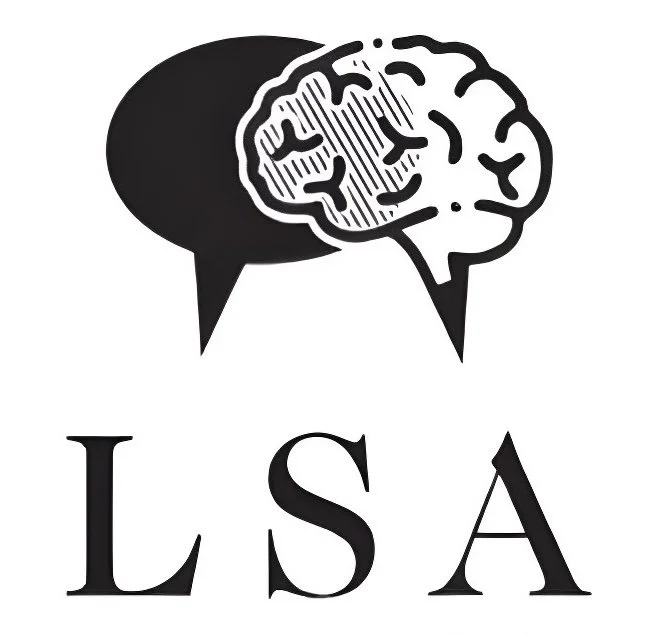
Upcoming events
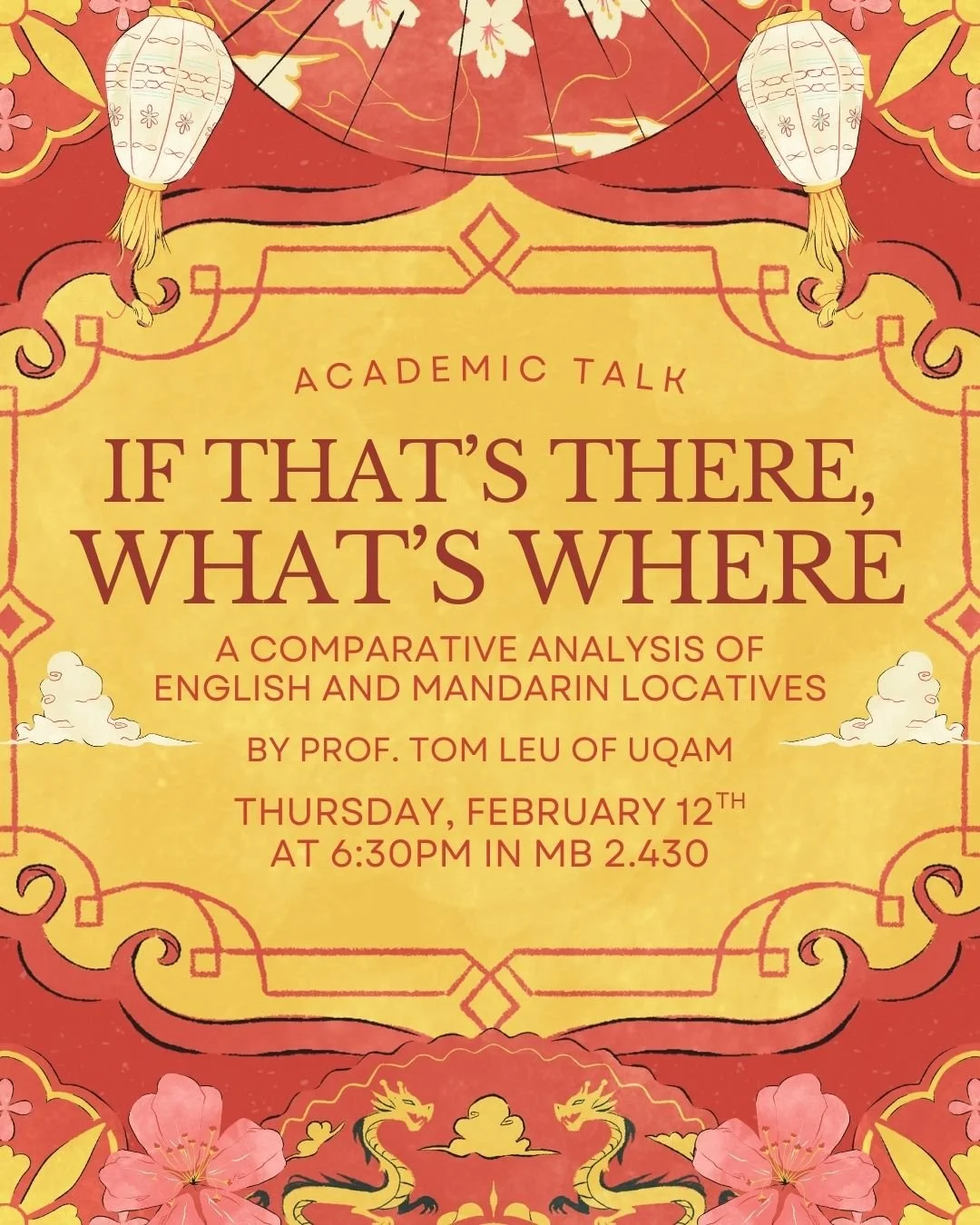
If That’s There, What’s Where: a comparative analysis of English and Mandarin locatives
with Prof. Tom Leu of UQAM, presenting research done in partnership with Wenli Tang of Université de Genève
Followed by a pub social at Ye Olde Orchard: your first drink is on us!

Ice Skating
Free hot drinks and snacks provided!
Bring your own skates (also available to rent for $14.95)
General Assembly & Game Night
Winter 2026 events!! 2026-2027 recruitment! FREE PIZZA! Game night! FB 1030.06
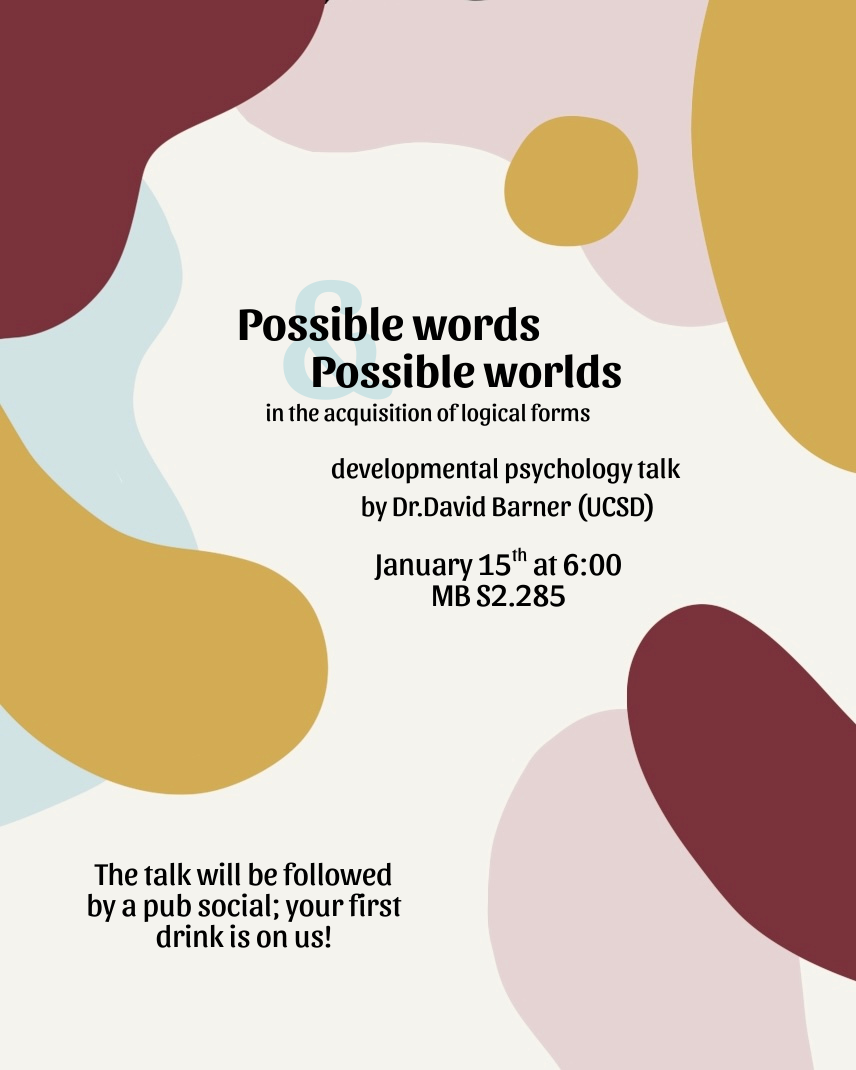
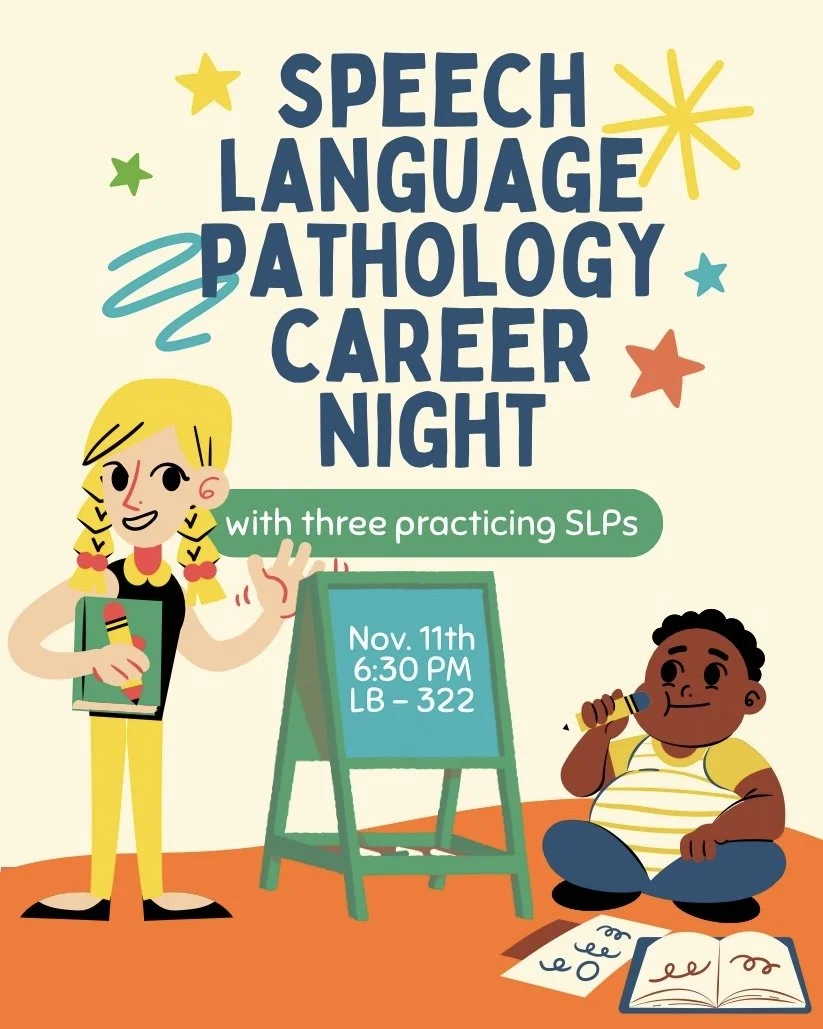
Speech Pathology Career Night
Three practicing speech pathologists will be present to discuss the life of an SLP: workplace environment, hours, life during your Masters, compensation, or any other aspects you may be curious about. This is the perfect opportunity for you to discover a popular career path after your Bachelors in Linguistics.
To listen in on Zoom: https://concordia-ca.zoom.us/j/89739959660?pwd=ECFz24KDhwuH3ZK7ziWRqT4oCiCkrH.1
Followed by a pub social: your first drink is on us!

Howl-oween
It's time to get spooky! You've been summoned to a have a hauntingly good time on Wednesday October 29th, in the student lounge on the 10th floor of the FB building. Starting at 4pm, we will be present to distribute candy to trick or treaters (costumes encouraged! ). Later, for those who dare, fight to survive in a village full of werewolves as we play Werewolves of Miller's Hollow. Games will start around 5:30pm and refreshments will be provided.

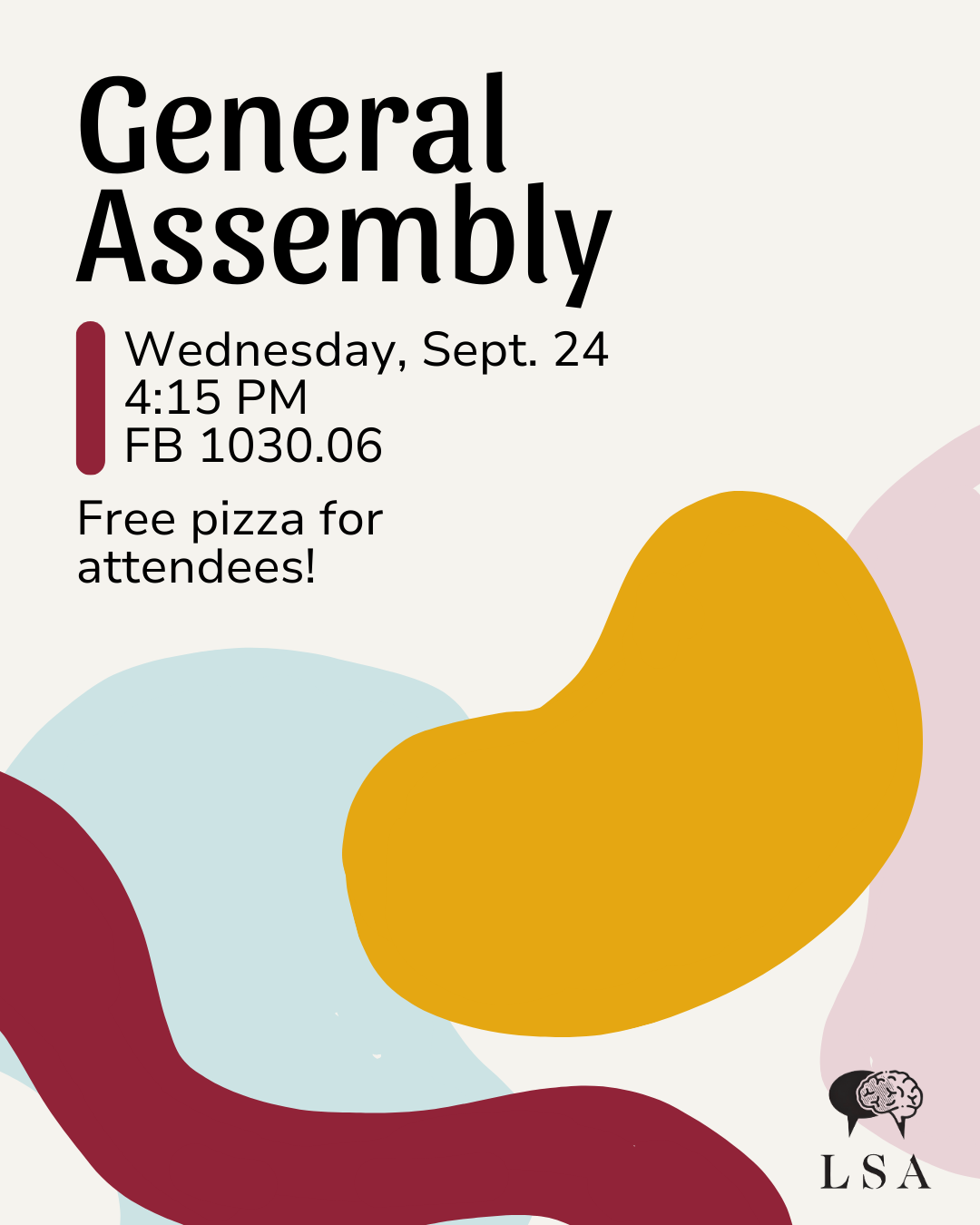
General Assembly
General assemblies are essential to keep us up and running! Learn about our plans for this academic year, meet the team, and enjoy some free pizza at our first event of the year,
What is language change? with Fae Hicks
Abstract: The term 'change' is used to refer to a number of different processes in Linguistics including: imperfect acquisition leading to a difference between the grammar of parent and their child, the altering of a grammar over the course of a speaker's life, and the spread of an innovative form through a community. The Historical Linguistic literature often fails to distinguish these events, discussing the 'spread of a novel grammar' as if the grammar itself is passed from person to person or even, addressing historical change as developmental steps in the evolution of a Language (e.g. French, English, Swahili) as if it were a homogenous organism choosing to change. Thus, historical work often progresses without a theory of change. Here, I discuss which definition of 'change' is assumed in various types of Historical Linguistic study and whether Historical Linguists can be said to study it at all.

Academic Talk and Pub Social
The very regular phonology of English irregular verbs
This talk offers an account of the English irregular PAst Tense verbs, Passive PArticiples and Perfect PArticiples (PA). Examples of these approximately 160 alternations include leave-left-left, sing-sang-sung, and drive-drove-driven. I argue that an autosegmental phonological account of these ‘irregular’ forms is more comprehensive and explanatory than analyses appealing to either (i) multiple phonological levels (Halle & Mohanan 1985), (ii) readjustment rules (Embick & Halle 2005, Embick & Schwayder 2018), or (iii) the direct conditioning of the allomorphy of the past tense morphemes (e.g., -ed, -t…) by the verb root or of the verb root by the PA morphology (Embick 2010).

Academic Talk and Pub Social
Academic talk by Justin Royer, PhD
Followed by a free drink at Ye Olde Orchard
Abstract:
Documenting dialectal variation in Chuj: A "one tale, two versions" approach
Over thirty Mayan languages are spoken in Mesoamerica and many of these exhibit considerable internal diversity. In fact, dialectal differences can be so pronounced that mutual intelligibility is affected among speakers of the same language. This talk describes and reflects on the benefits of using a community-based approach for understanding dialectal variation, with a focus on Chuj. While Chuj is generally recognized as having two main dialects, the extent of their differences is far from completely understood, and the prestige dialect has received a disproportionate amount of attention. We focus on one useful method that addresses these issues: documenting versions of the same folktale in different dialects. We show how our method can actively engage Chuj community members from all dialectal communities in order to (a) enrich the understanding of cultural and linguistic diversity in the Mayan context, (b) expand resources available for dialects that have received less attention, and (c) shed light on which grammatical patterns exhibit substantial variation. Furthermore, we argue that this approach is desirable in the long-term, since it incorporates capacity building within the community.

Academic talk: in collaboration with the GISA
Haitian creole syntax-phonology interface: Rethinking the Ki/Ke alternation
Followed by a pub social, your first drink is on us!


Academic Talk and Pub Social
Disentangling movement and agreement: A clitic doubling case study
by Lefteris Paparounas, PhD

General Assembly
Free pizza, drinks and snacks provided!
Join us in person in FB 1030.06 or on Zoom: https://concordia-ca.zoom.us/j/89889828969
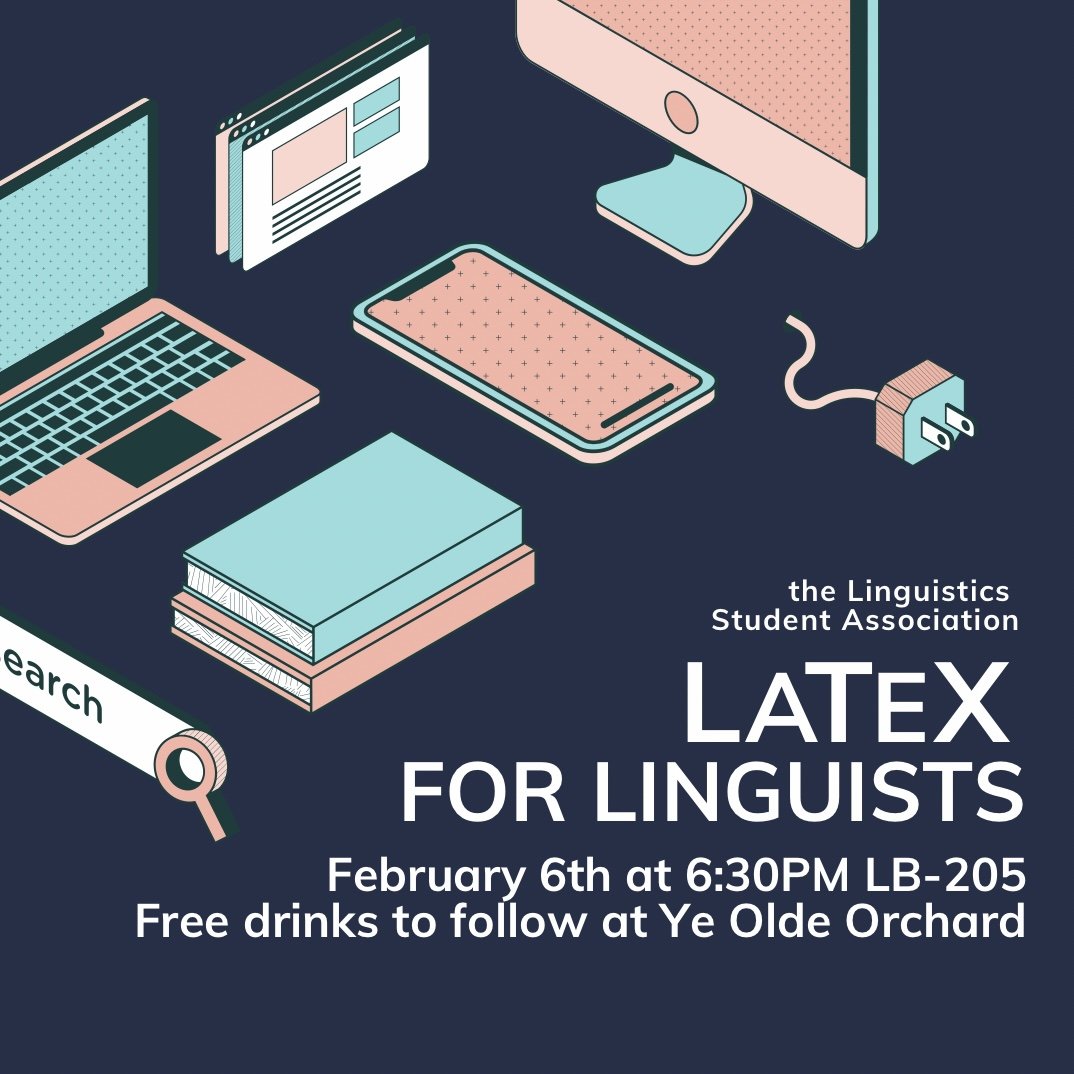
LaTeX Workshop
How you can prepare for this workshop:
Download LaTeX software
Watch the following informational video: https://www.youtube.com/watch?v=yPnfHRE_W_g&ab_channel=Dr.ManuelKuehner


Grad School Application Workshop
Curious about the process of applying to grad school? Looking for ways to make your application stand out? Learn more about grad school applications during this workshop with Prof. Charles Reiss.

The Typology of Hyperraising
Join us at 6:30PM in LB-322 for an academic talk on the Typology of Hyperraising by Magdalena Lohninger (M.A. University of Vienna). The talk will be followed by a pub social at The Olde Orchard, where a free drink will be provided!

What Could Be, Could’ve Been And Isn’t
Academic talk by Dr Maxime Tulling, Assistant Professor at Université de Montréal, followed by a Q&A and free drink at Ye Olde Orchard.
How Adults and Children Understand Non-Actuality
One of the greatest feats of human language is its ability to communicate what is possible, impossible, or simply not true. This feature of language permits us to share imagined scenarios, hypothetical outcomes, and false ideas, expanding our understanding beyond the actual world.

Halloween Hangout
Ring in spooky season with us! Play spooky games, share ghost stories and meet some new faces while enjoying complimentary food and drink at l’Anticafé.

